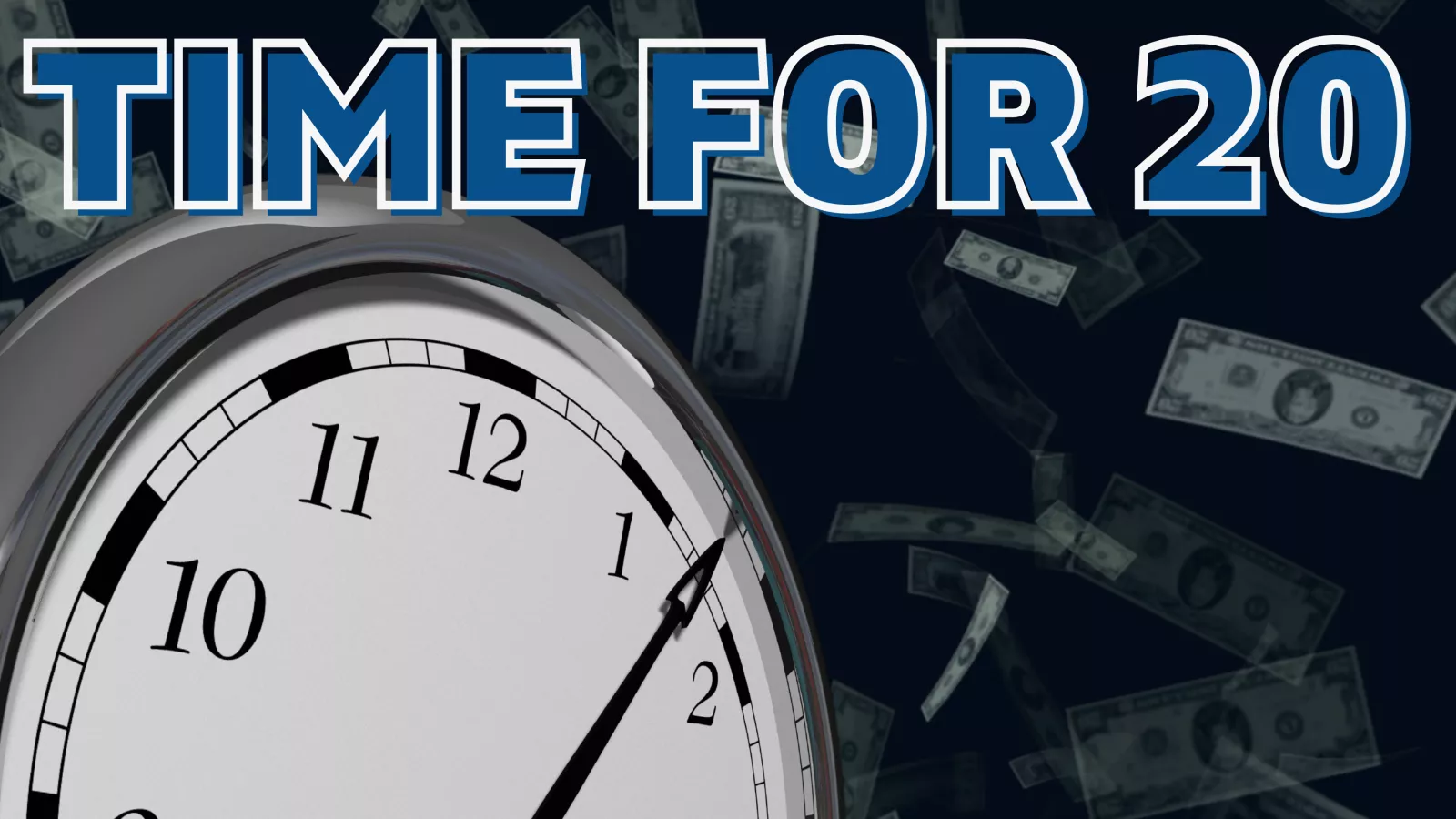
NSEA's 2022-2023 Legislative Priorities
Key Takeaways
- Time for 20 means a 20% increase in educator pay and at least $20/Hour for the workers who make our schools run. With some of the largest class sizes in the country, Time For 20 also means reaching an average class size of 20 students.
- The Respect Educators Act would elevate the safety, well-being, and autonomy of educators in their work. This includes guaranteeing educators have their professional judgment and discretion respected by school and district administrators and are treated with civility and respect.
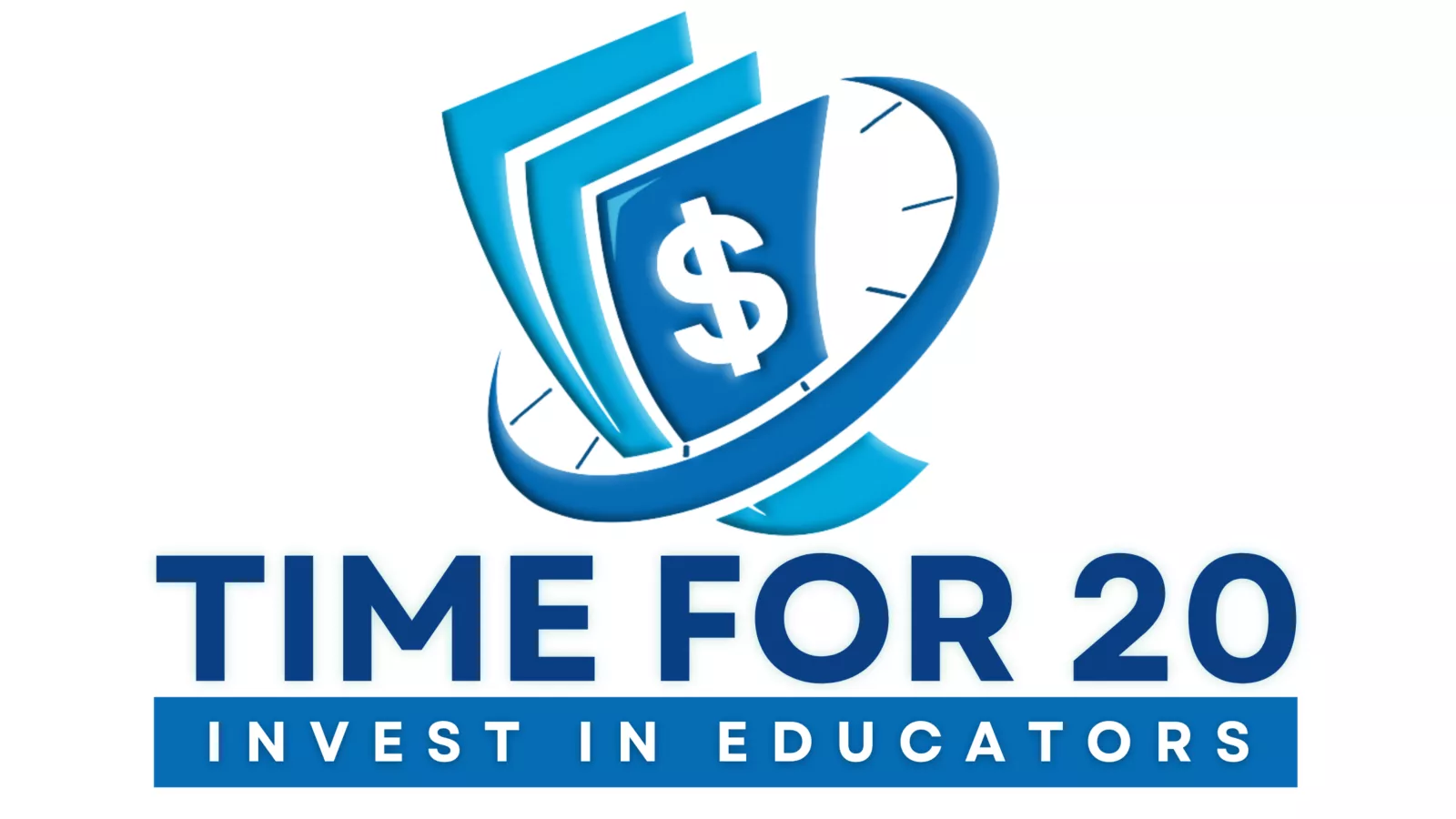
Time For 20
For decades, Nevada has struggled with overcrowded classrooms and a shortage of educators to teach our kids and make our schools run. With the additional challenges of the last two years, we have reached a new crisis point. There are thousands of vacant positions across the state in addition to the structural educator shortage with the largest class sizes in the country. Nevada needs bold action to address the crisis in public schools. It’s time to adequately fund public education in Nevada. It’s Time for 20!
- The Economic Policy Institute reports public school teachers earned 23.5% less than other college-educated professionals – a record high.
- According to the National Education Association’s Ranking of the States, Nevada public school teachers make nearly $7500 below the national average and $27,000 less than neighboring California.
- Nevada has some of the largest class sizes in the country, with some of the highest concentrations of at-risk students and English learners.
- Educator safety is a growing concern, as horrific violence in classrooms dominates the news.
- A substitute teacher shortage has left countless classrooms with no teacher at all, forcing remaining staff to cover additional classes.
- A chronic bus driver shortage has caused serious delays, sometimes stranding students for hours. Multiple districts have canceled routes and adjusted schedules to mitigate the issue.
- Thousands of education support professionals across the state earn significantly below a living wage, with starting salaries as low as $10 to $11 per hour.
- Prices are climbing at the fastest pace in 40 years, with CPI as high as 9% in 2022. Home and rent prices have skyrocketed across Nevada, with average rents up 20-25% over the last year alone.
There have been recent efforts across the country to raise educator pay to address the educator shortage. In 2022, New Mexico increased educator pay by an average of 20%. When talking about low education funding, Nevada is frequently compared to Mississippi, but this may no longer be fair to Mississippi, as they passed legislation to raise teacher pay by more than 10% in 2022!
It’s Time for 20 to invest in our educators, and to truly meet this moment of crisis in Nevada schools.
To address these concerns, NSEA SUPPORTS:
- A 20% increase in educator pay.
- At least $20/hour for the workers who make our school run.
- Average class sizes of 20 students in core academic subjects.
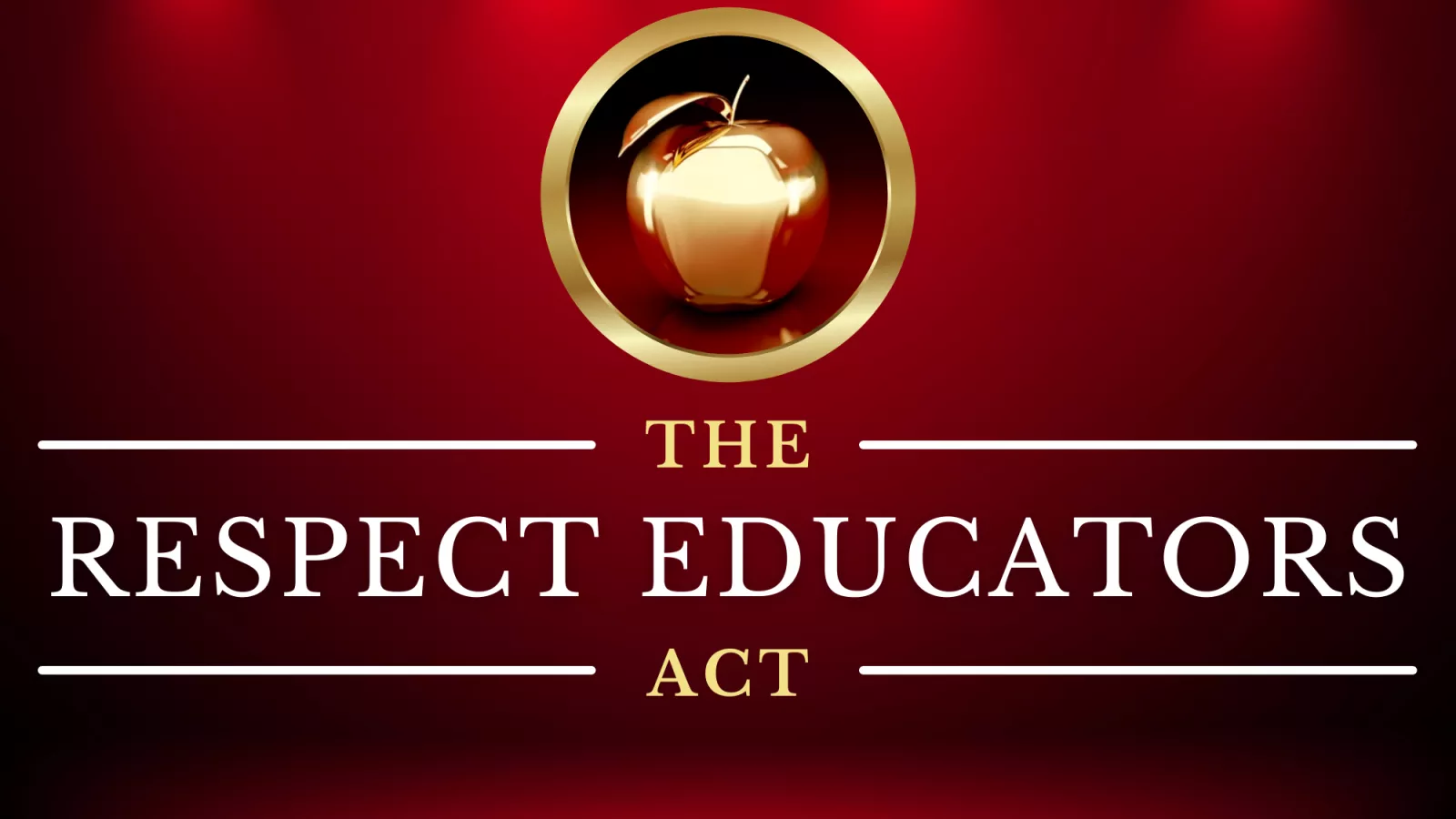
The Respect Educators Act
In the wake of the horrific event at El Dorado High School earlier in 2022, Vickie Kreidel, a teacher and President of the NEA of Southern Nevada said, “The young woman who was attacked, her life will never be the same. You can’t cross your fingers and hope for the best. What happened shows that’s not going to work. They haven’t done enough. Whatever talks have happened is not enough. It is too late for committees. It is too late for town halls.”
High-profile school violence events are not new and not limited to Clark County or the 2013 shooting at Sparks Middle School, which took the life of teacher Michael Landsberry. NSEA has consistently heard alarming concerns about personal safety from our members across the state. That’s why we have a long history of engagement on the issue of educator safety and student disciplinary practice. NSEA spearheaded the creation of the progressive student discipline system decades ago and during the 2019 session, we were the only stakeholder group raising public concerns during the discussion of implementing restorative justice in AB168. We believe a strong restorative discipline system could reduce incidents where educators sustain injuries. However, this system needs to be proactive, implemented district-wide, and will require much greater attention and significant new resources.
Last interim, NSEA proposed an Educator Bill of Rights to improve educator safety and to respect the educator voice, but our proposal was largely disregarded. Since the pandemic, the situation in schools seems to have deteriorated further. A delayed and poor statewide implementation of AB168 has left many schools and school districts unsure about the student discipline system, opting for little to no student discipline at all. The pandemic has exacerbated mental health issues. And a historic educator shortage, with thousands of vacant positions across the state in addition to the structural shortage with the largest class sizes in the country, makes it nearly impossible to implement even the best plans for school safety and student discipline. Meaningful resources for student mental health and a real investment in the implementation of restorative justice system are long overdue.
The Respect Educators Act would elevate the safety, well-being, and autonomy of educators in their work. This includes real accountability for any violence committed against educators and giving educators the tools necessary to deal with disruptive behavior. The Respect Educators Act also calls for the creation of a monitoring committee including educators from across the state, legislators, and NDE to gain a clear understanding of the impact of the laws, ensure consistent implementation, and secure protection for all students and educators.
Educator voice in the classroom and at the worksite is also a key component of the Respect Educators Act. This includes guaranteeing educators have their professional judgment and discretion respected by school and district administrators; are treated with civility and respect; are not required to complete excessively burdensome paperwork; are afforded adequate time during the work week for lesson planning and collaborations with other teachers; have greater autonomy regarding student grading; are able to better enforce student attendance requirements; and have fair work evaluations.
To address these concerns, NSEA SUPPORTS:
- Creation of a restorative practices monitoring committee including educators from across the state, legislators, and NDE to gain a clear understanding of the impact of the laws, ensure consistent implementation, and secure protection for all students and educators.
- Greater autonomy regarding student grading and enforcing student attendance requirements.
- Adequate time during work hours for lesson planning and collaborations with other teachers and reduction of excessively burdensome paperwork.
- Allowing active educators to serve on their elected school boards and/or appointing an NSEA member to serve in an advisory capacity at school board meetings.

Educator Retention, Pipeline, and Class Size
NSEA believes retaining and attracting qualified teachers in every classroom and other educators to keep schools running is critical for all Nevadans. Shortages of teachers and other educators impacted school districts across Nevada before COVID-19, but our current shortage is now an unprecedented crisis, compromising the basic operation of too many of our schools.
The number of students in a class makes a real difference for students and teachers alike. For students, smaller class size can help close the racial achievement gap, lead to earlier identification of learning disabilities, improve high school graduation rates, improve student behavior, and allow for more engagement in lessons. For educators, smaller class size improves educator morale as it allows for more individual and differentiated instruction, less time on paperwork, and stronger classroom management as teachers become more aware of individual students’ strengths or weaknesses.
NSEA supported AB266 last session to ensure a more accurate reflection of the realities of Nevada’s classrooms and move Nevada toward actively addressing overcrowded classrooms by requiring school boards to determine the number of job vacancies based on how many teachers are needed in order to achieve the recommended ratio of pupils per licensed teacher. We are hopeful this data spurs decision makers to take bold action to address our shortage of educators.
While there rightfully has been a great deal of focus on the teacher shortage, Nevada schools also face a shortage of education support professionals, a critical component of the family of educators in our schools who perform numerous critical functions for learning to take place. Over the past two years, Nevada school districts have tried to weather an unprecedented shortage of bus drivers and other education support professionals, however, the situation appears only to be getting worse. NSEA proposes using the model of the Teacher Recruitment and Retention Task Force to address the very real issue of recruitment and retention for our other education employees who make schools run.
NSEA also appreciates the importance of having educators reflect the diverse student populations they are working with. We supported efforts last session to provide additional support to classroom education support professionals pursuing their teaching credentials.
To address these concerns, NSEA SUPPORTS:
- Time for 20—a 20% raise, a $20 minimum wage, and an average class size of 20 students.
- Implementation of recommendations of the Teacher Recruitment and Retention Task Force.
- Create a broader Educator Recruitment and Retention Task Force.
- Addressing the need for more diversity in the education profession, so education employees reflect the student population more consistently.
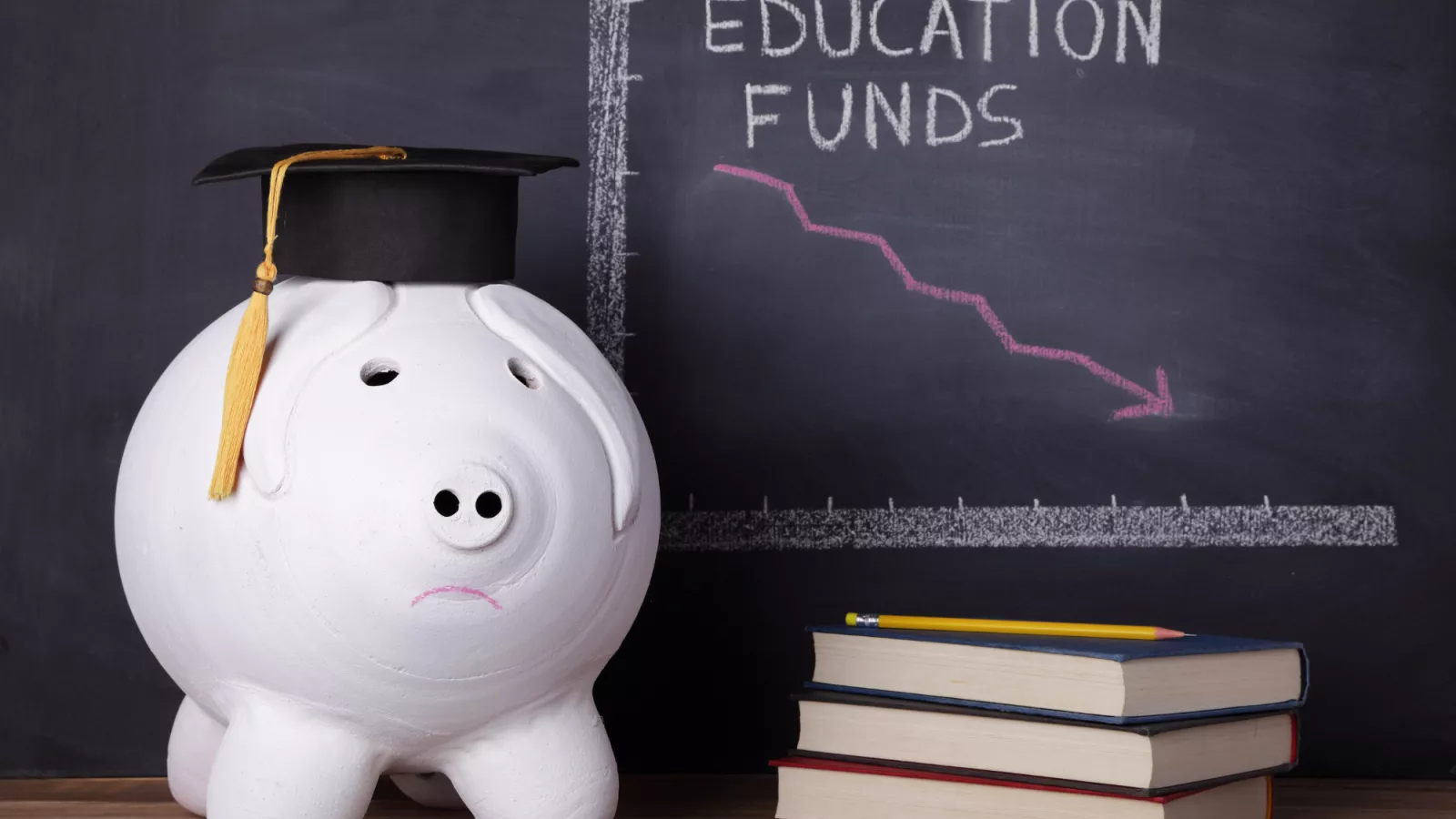
School Finance
For decades, NSEA has led the charge against chronic underfunding of public education in Nevada, from the instigation of the IP1 room tax in 2008 and qualification of the Education Initiative in 2014 to our 5 major Red for Ed rallies in Carson City in recent years. NSEA’s efforts have been a large part of creating a social and political consensus – Nevada needs to invest significantly more in public education.
In 2021, the Commission on School Funding published Preliminary Recommendations Regarding Optimal Funding, setting a goal to reach “adequate” funding by increasing education investment by $2B over the next 10 years. That’s why NSEA called for the passage of 2021’s AJR1, the mining tax that would have generated over $400M. Instead, a new tax on gross revenues of mining was adopted to generate an estimated $85M/year. These monies will be added to the new education funding plan along with $70M/year in existing net proceeds starting in 2023. For the current biennium, while better-than-projected state revenue was used to backfill general fund cuts, total per-pupil funding actually decreased by $115 from FY21 to FY22.
School districts across the state have seen their funding levels frozen in place with the implementation of the new funding formula, despite skyrocketing costs with inflation over 8% in the last year. With new restrictions on collective bargaining also written into the funding formula, many local education unions have been unable to bargain meaningful raises. This has further exacerbated the educator recruitment and retention issue plaguing our state.
The Funding Commission recommended increasing education spending by $200M in additional every year. It is clear Nevada is falling short of what is needed to reach adequacy, especially with skyrocketing costs. NSEA looks forward to continuing our fight against chronic underfunding of public education.
To address these concerns, NSEA SUPPORTS:
- Time for 20—a 20% raise, a $20 minimum wage, and an average class size of 20 students.
- New, progressive revenue for schools to meet or exceed the recommendations of the Funding Commission. This could include a new wealth tax, millionaire tax, and expanded gaming and mining taxes.
- Adjusting the new funding formula to allow cost of living increases and fair collective bargaining across the state, including adjusting walled-off ending fund balance to 8.3%.
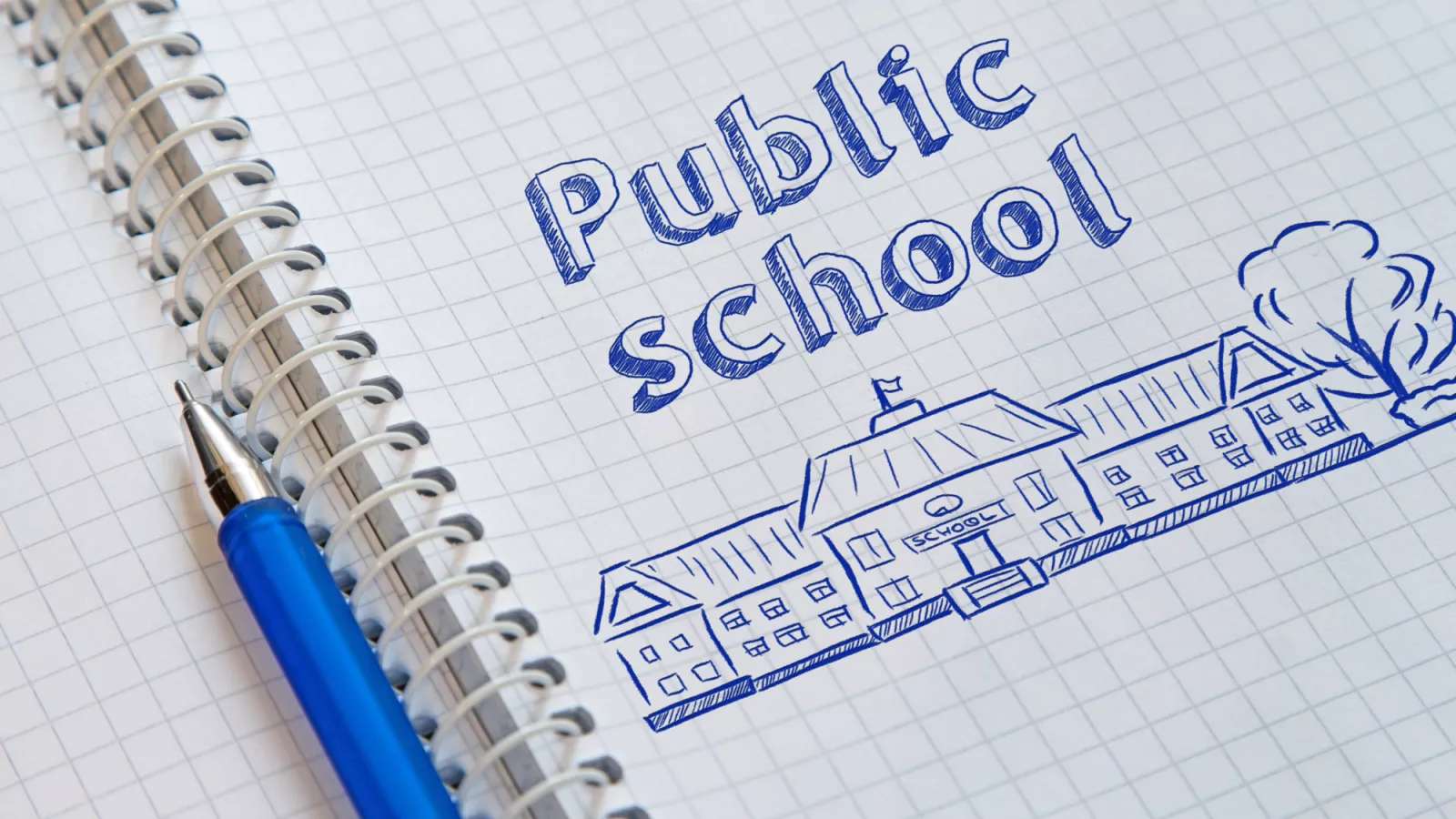
Public Education, The Great Equalizer
Public schools are available to every child, and that’s where 90% of Nevada students are educated. A high-quality public education system helps address inequalities in opportunity and disparities in resources across families and communities. Efforts to defund public schools are directly related to calls to allow public resources to pay for private schools or privately-operated charter schools exacerbates inequality.
Backroom dealmaking at the end of the 2021 Legislative Session led to the giveaway of millions of dollars in public funds to those profiting from education, including unaccountable charter schools and private schools. This deal included an additional $5M for Opportunity Scholarships, backdoor vouchers for private schools, while also deleting language we won in 2019 to phase out the program.
Charter schools were initially promoted by educators who sought to innovate within the local public school system to better meet the needs of their students. Over the last 25 years, charter schools have grown dramatically to include large numbers of charters that are privately managed, largely unaccountable, and not transparent as to their operations or performance.
The explosive growth of charters has been driven by deliberate, billionaire-backed efforts to ensure that charters are exempt from the basic safeguards and standards that apply to public schools. This growth has undermined local public schools and communities, without producing any overall increase in student learning and growth. While charters are prohibited from discriminating, they continue to serve far fewer students in poverty, English language learners, and students with disabilities. Recent efforts to diversify charter school student populations unfortunately won’t address the structural inequity that is built into the system of charter schools and their relationship to neighborhood public schools.
Last session, NSEA proposed legislation to require all teachers who provide instruction at charter schools to be licensed. However, this legislation was met with resistance from the charter industry and was watered down to only require 80% of charter teachers to be licensed. Other small charter reforms were passed, but charter school expansion has been left in the hands of the pro-charter Authority.
The institution of public education that we are protecting is fundamentally about equity—giving opportunity and leveling the playing field for all students in the state. NSEA has been a strong supporter of the state’s Zoom School and Victory School programs, providing additional resources to schools in Nevada’s poorest communities, with large concentrations of English language learners and low-income and at-risk students. Unfortunately, these model programs were phased out by the new funding formula with resources converted to small student weights, distributed across the state.
To address these concerns, NSEA SUPPORTS:
- Reinstatement of the successful Zoom and Victory School models.
- Elimination of private school vouchers (Opportunity Scholarships).
- Require same standards for teachers at charter schools as traditional public schools.
- Stronger controls for charter schools, including online charters.

More Learning, Less Testing
A top concern of classroom educators has been too many standardized tests shifting the focus in the classroom away from student learning toward a culture of high-stakes testing. NSEA has been actively working to reduce the burden of standardized testing, helping pass a bill to require reviews of student assessments in 2017 and again in 2021. While small changes have been made over the last several years, the current crisis calls for a more substantive overhaul of state testing requirements. With colleges and universities across the country moving away from testing requirements for admissions, it no longer makes sense to require all high school students to take the ACT or another college and career readiness assessment. Instead, meaningful proficiency exams should be developed by Nevada educators.
Last session NSEA continued our advocacy for meaningful teacher evaluations based on practice and professional responsibilities, and not student data. We supported AB57 to pause the use of student data in teacher evaluations during this school year. While this legislation was crafted to address impacts of the COVID-19 pandemic, the lesson has been learned—student data does not belong in a teacher’s evaluation. Educators want to be held accountable with fair, timely, rigorous, and valid measures. Evaluation structures that depend on student data are not a fair or valid measure, because student growth is dependent on many factors not under a teacher’s control.
Meeting the demands of the teaching profession requires tremendous will, ability, creativity, organization and preparation. It also requires continuous learning, feedback, and support. To ensure high quality teaching, it is necessary to have meaningful evaluations that provide a format for constructive assistance. Over the past 10 years, Nevada has worked to build this framework to measure teachers’ instructional practice and leadership as well as professional responsibilities. Unfortunately, Nevada’s schools and teachers have suffered through competing political emphasis on the use of student data, first with the use of test scores as part of an educators’ evaluations and now measuring growth. These competing priorities have compromised the entire accountability system—relegating proven educational practice including student engagement, lesson planning including differential instruction, scaffolding, professional development opportunities, and classroom management.
Given these developments, NSEA SUPPORTS:
- Streamlining Nevada’s assessment systems.
- Ending college and career readiness assessment graduation requirement and replacing it with meaningful proficiency exams developed by Nevada educators.
- Ensuring the Nevada Educator Performance Framework is a valid measure of instructional practice, leadership, and professional responsibilities.
- Reliance on the professional teachers in the classroom to assess students and to design and deliver instruction.
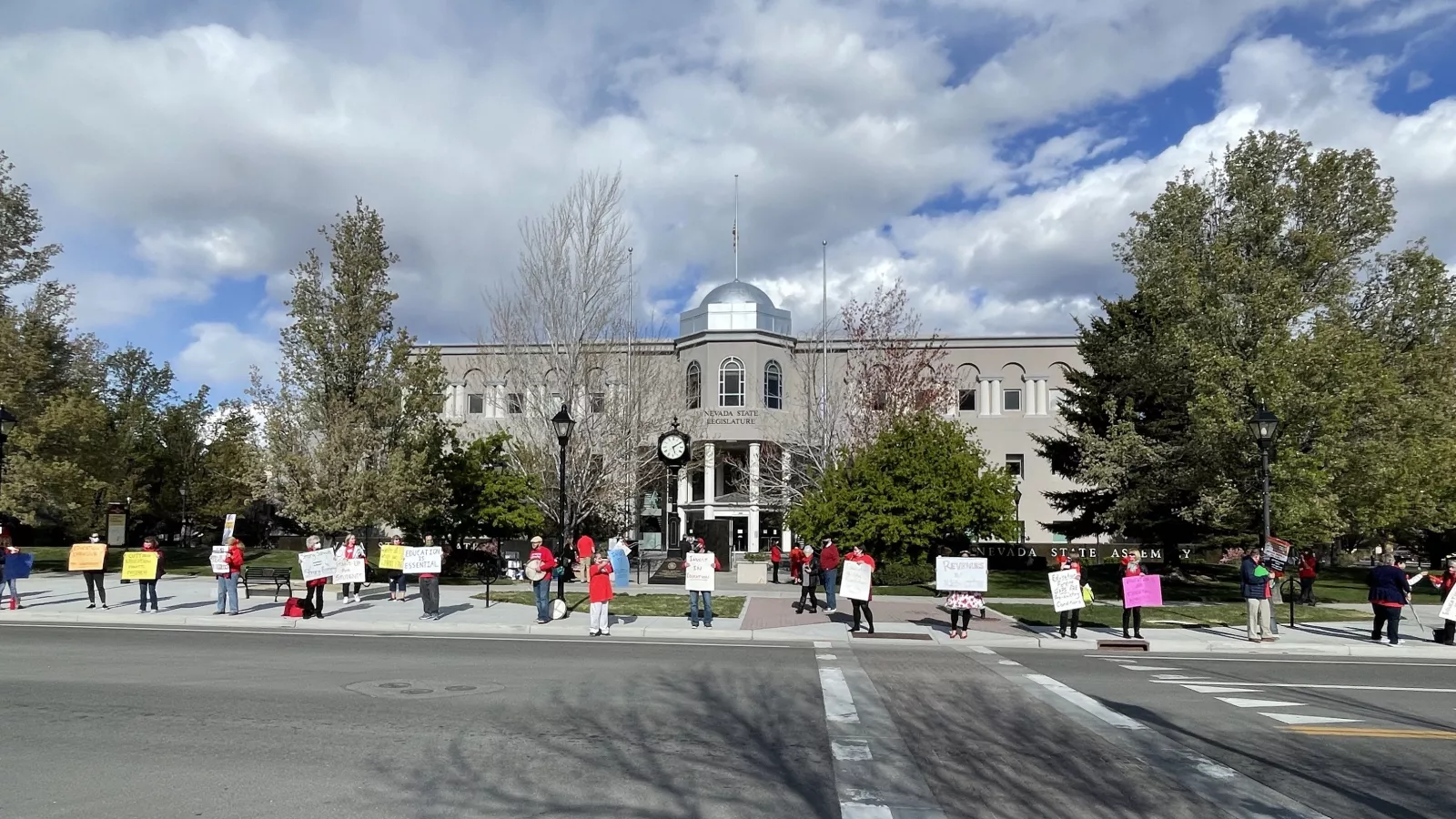
Member Rights
As the representative of teachers and other licensed educators and education support professionals across the state, NSEA is committed to the well-being and protection of our members. This includes safety and rights in the workplace, our collective bargaining rights, access to life’s necessities like healthcare and security in retirement, and educator voice on decisions impacting us.
The new funding formula passed in 2019 included language to increase district ending fund balance walled off from collective bargaining up to 16.6% of annual operating costs. Historically, for school districts, the Nevada Administrative Code provided for 8.3%. NSEA believes this historical language is appropriate, as school district budgets have a high level of predictability given state funding. Last session, NSEA expressed our grave concern that ending fund balance would effectively be removed as a source of funds to justify any union proposal with a cost, slanting the collective bargaining process in favor of employers. NSEA introduced SB124 to address this issue, but the bill died without receiving a hearing. However, we continued to apply pressure on this issue, and got language added to the funding formula implementation bill (SB439) to lower ending fund balance walled off from collective bargaining to 12%. It should be restored to 8.3%.
One of NSEA’s biggest victories last legislative session came in March, when Governor Sisolak signed an emergency regulation allowing for unemployment benefits to be available to education support professionals (ESPs) during the summer of 2021. However, 9-11 month education employees don’t get paid during the summer months and are once again ineligible for unemployment benefits. Meanwhile, when it comes to retirement benefits, education support professionals only accrue three-fourths of a year of service for each school year, while licensed educators like teachers accrue the full year.
Since the COVID-19 pandemic, educators across the state have become increasingly concerned with accessing quality, affordable healthcare. This affects active educators, and especially retirees who are not eligible for Medicare or are living in areas without good health provider options. We believe that healthcare is a right, and that the state should ensure those who have served to educate our kids have access to the healthcare they need to live with dignity.
NSEA’s Time for 20 campaign is both about worker dignity and addressing the record vacant positions at school districts. NSEA is concerned some employers may opt to contract out public jobs instead of paying living wages. Education Support Professionals are a critical component of the family of educators in our schools. Students have a range of needs that must be met for learning to take place. When trusted educators are replaced by private contractors, the overall quality and safety of our public education system is compromised.
NSEA takes pride in engaging our members in the democratic process. This includes participating in school board elections. However, educators are not able to serve as trustees on their school board, blocking one of the most important voices from school governance.
To that end, NSEA SUPPORTS:
- Protecting and strengthening collective bargaining for educators, including restoring ending fund balance provisions to 8.3%.
- Extend summer unemployment eligibility to 9-11 month education support professionals.
- Defending Nevada PERS defined benefit status and provide equity in retirement accrual for education support professionals.
- Ensuring every educator and retired educator has access to quality, affordable health care including affordable prescription coverage.
- Paid parental leave for all educators.
- Ensuring a living wage for all education employees and prohibiting outsourcing of public jobs.
- Require governmental employers to provide contact information for all members of the bargaining unit to recognized unions semiannually.
References
Ensuring a High Quality Public Education For Every Student
The Nevada State Education Association is a state affiliate of the National Education Association (NEA), the nation's largest professional employee organization. NEA has affiliate organizations in every state and in more than 14,000 communities across the United States.